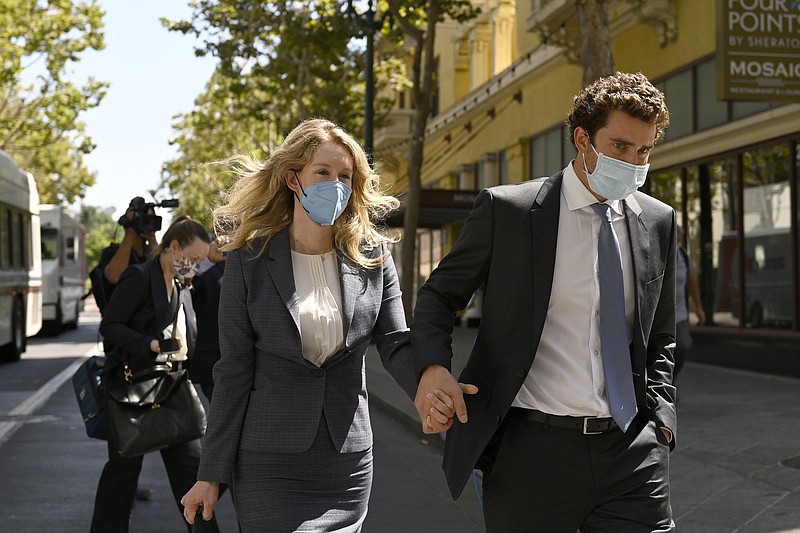An estate lawyer for Henry Kissinger revealed his role in helping Theranos Inc. get $350 million in funding from some of the wealthiest families in the U.S. -- the Waltons, the DeVoses and the Coxes -- four years before the blood-testing company collapsed in scandal.
Daniel Mosley, a longtime estate lawyer at firm Cravath Swaine & Moore LLP, testified Tuesday at the fraud trial of Elizabeth Holmes that after he was asked to vet the Silicon Valley startup by the former secretary of state who served on its board, he introduced members of the three families -- all clients of his -- to Holmes in 2014 when she spoke at a conference in Chicago.
The testimony showed that Theranos, which peaked at a valuation of $9 billion, managed to win over a veteran estate attorney at a venerable firm who was a voracious researcher of investment opportunities. In turn, Walton family members tied to the Walmart dynasty invested $150 million, while the Cox family that controls an Atlanta-based media empire kicked in $100 million and the DeVos family, whose patriarch was a billionaire industrialist, put up another $100 million, according to testimony and media reports.
Mosley, who said Kissinger had described the company to him as "revolutionary," wrote to Holmes in a September 2014 email that he wanted to share with others a memo he wrote for the former diplomat extolling the high-flying company's prospects.
"Dr. Kissinger has mentioned a couple of other families with whom he has had a very long relationship as possible candidates for investors," Mosley wrote in the email, which was shown to the jury.
Prosecutors called Mosley to counter arguments by lawyers for Holmes that Theranos investors were sophisticated enough to understand what they were getting into. Holmes is accused of duping investors out of hundreds of millions of dollars and misleading patients by lying about the capabilities of Theranos machines and the company's financial well-being.
Mosley made it sound like he thoroughly digested everything he could get his hands on: shareholder agreements, reports purporting to be from pharmaceutical companies that verified Theranos blood-testing technology and every shred of material Holmes sent him about her company, along with news stories. He testified that he invested almost $6 million of his own money in Theranos.
Those materials, shown to the jury, included drug company endorsements that evidence has shown were fabricated by Theranos; statements about blood analyzers being adopted by the U.S. military that have been challenged at trial as false; and projections of revenue and income that other witnesses have said were greatly overstated. Mosley's testimony also shed light on the financial structure of Theranos, particularly how the closely held company's shares were allocated in a way that allowed Holmes to be dubbed the youngest self-made female billionaire in 2014.
He walked the jury through the research memo he wrote for Kissinger and explained that Holmes owned all of the company's class B shares, which had 100 times the voting power of other classes. The upshot: Her ownership represented almost 50% of the value of the company.
"It meant Elizabeth would be absolutely in control of the company," Mosley told the jury, adding that this was a good quality. She was "obviously the visionary" who created this company, he said. "Having her in control of the company was a good thing."
The series of Theranos shares Mosley invested in, C-2, contained an "unusual" mandatory redemption provision in which the board could independently determine the fair market value of the stock and approach any individual shareholder to say, "We're liquidating your shares."
Mosley objected to the provision, and through Holmes, he took it up with attorney David Boies, who represented Theranos at the time. Mosley said he got the provision lifted for himself and his clients.
A prosecutor asked Mosley about a part of his investment agreement explaining the risk that he could lose his money. "I didn't think I had inaccurate information," Mosley said. "It was a risk I was a willing to take based on what I knew."
